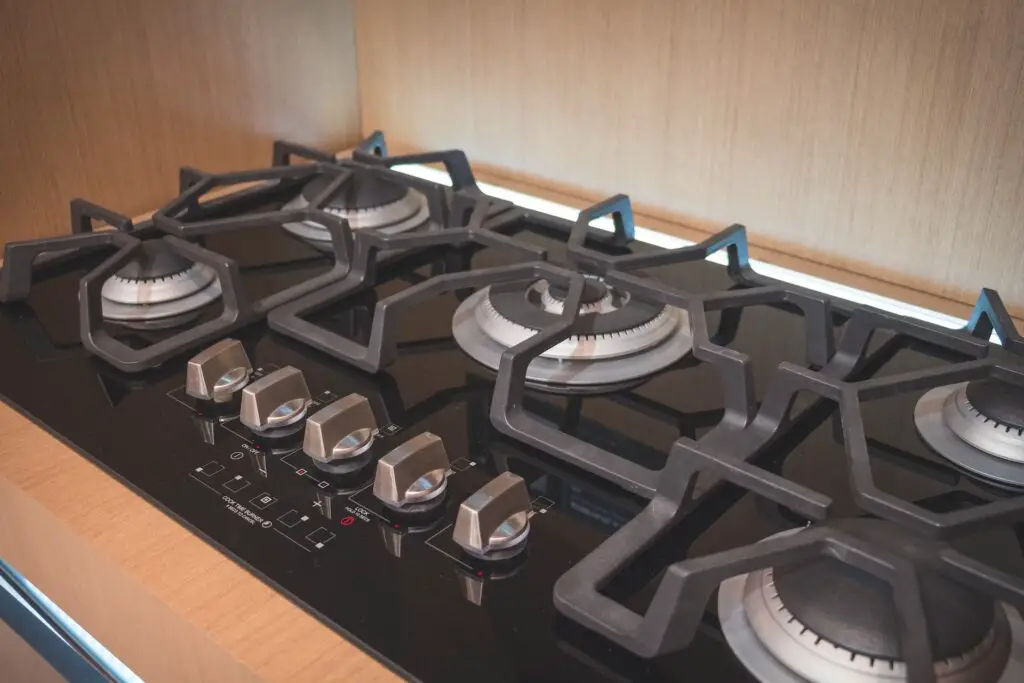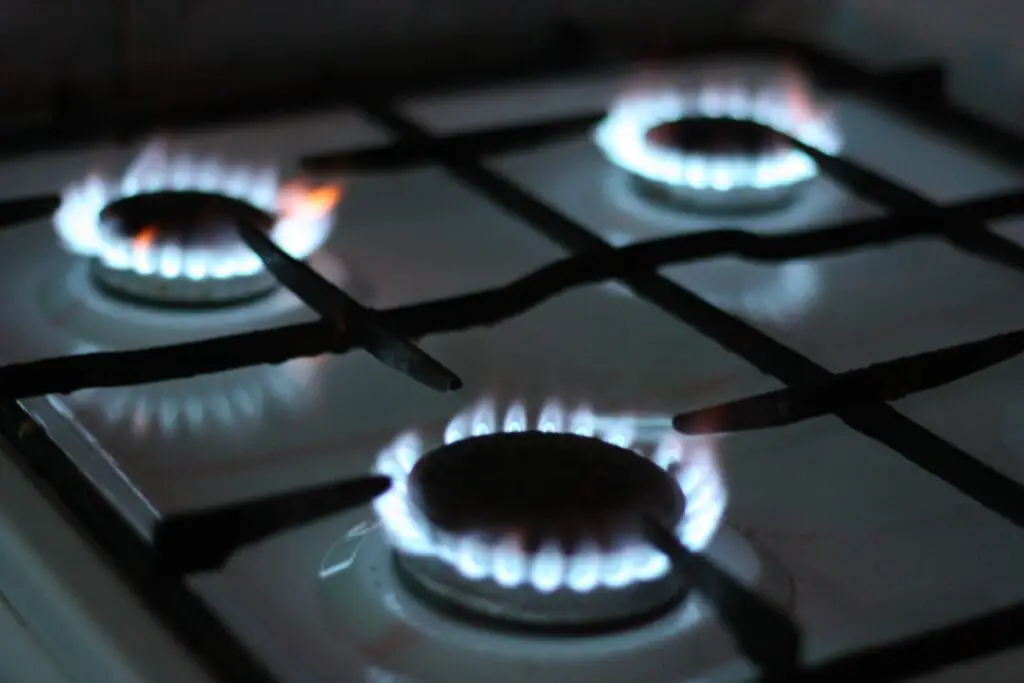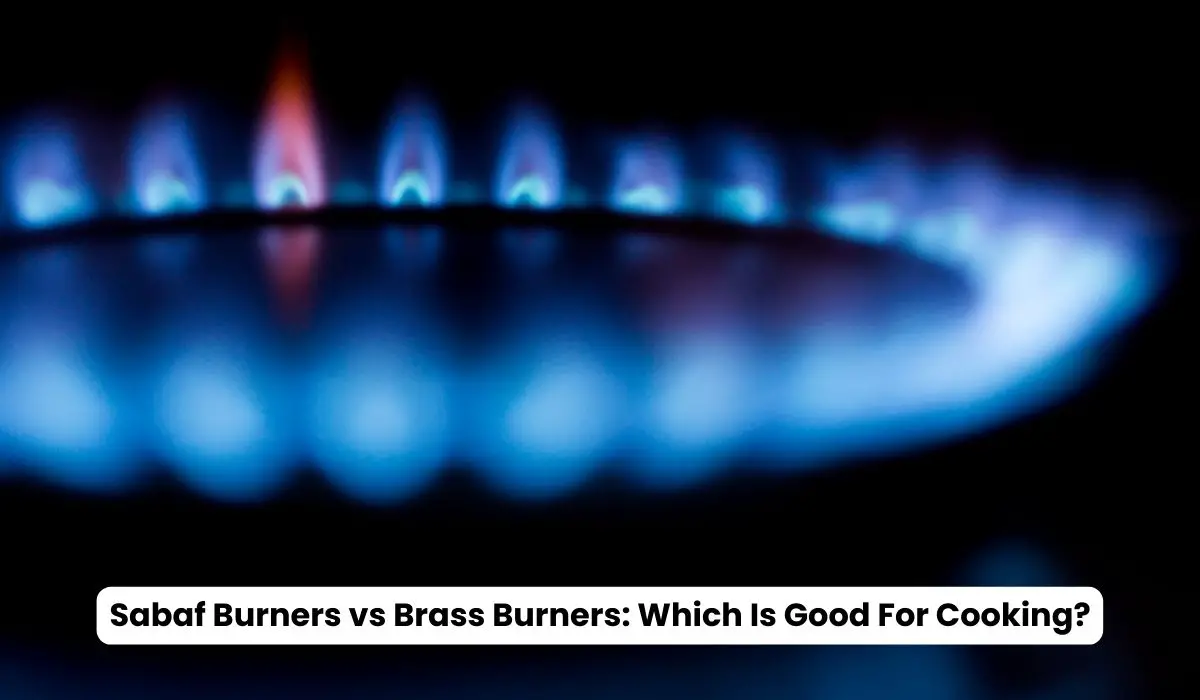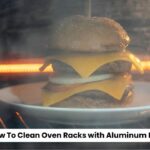In the world of kitchen appliances, choosing the right burner for your stove is a decision that can significantly impact your cooking experience. Burners are the heart of your stove and come in various materials and designs. Two popular options in the market are Sabaf burners and brass burners. But which one is better for cooking? In this article, we will explore the key differences between Sabaf and brass burners to help you make an informed decision.
Table of Contents
What are Sabaf Burners?
Sabaf burners are like the superheroes of your kitchen stove. They’re the ones who make sure the flames come out just right when you turn on the gas to cook your favorite meals. Now, let’s dive into a bit of history. Sabaf is a company from Italy, and they’ve been making these special burners for a long time—since way back in 1941! That’s even before some of our grandparents were born. They started with a small workshop, and over the years, they became experts in making burners that are super good at cooking food evenly and saving energy.
Advantages of Sabaf Burners:

Sabaf burners have gained popularity in recent years for their efficiency and reliability. These Italian-made burners are known for their cutting-edge technology and innovative design. Let’s take a closer look at the advantages of Sabaf burners:
1. Precision Cooking
Sabaf burners are engineered for precision. They provide consistent heat distribution, ensuring that your food is cooked evenly. Whether simmering a delicate sauce or searing a steak, Sabaf burners offer the control you need for perfect results.
2. Energy Efficiency
In today’s eco-conscious world, energy efficiency is a top priority. Sabaf burners are designed to be energy-efficient, reducing your carbon footprint while saving you money on utility bills.
3. Durability
Sabaf burners are built to last. Crafted from high-quality materials, they are resistant to wear and tear, making them a long-term investment for your kitchen.
4. Safety Features
Safety should always be a concern in the kitchen. Sabaf burners have safety features such as flame failure protection, ensuring you can cook safely.
Disadvantages of Sabaf Burners:
Sabaf burners, often found in gas stoves, have some disadvantages you should know about. Let’s explore them:
1. Costly Repairs
Sabaf burners can be expensive to fix if something goes wrong. If a part breaks or needs replacing, it might cost much money to get it working again.
2. Not Great for Low Heat
Sabaf burners are excellent at high-heat cooking but may be better for low-heat tasks like simmering. It can be challenging to control the heat in shallow settings.
3. Sensitivity to Spills
These burners can be sensitive to spills and food particles. If something spills onto the burner, it might affect how it works, and you’ll need to clean it carefully.
4. Not as Durable as Some
While Sabaf burners are good quality, they may not be as durable as other types of burners, like brass burners. This means they may wear out faster.
5. Limited Aesthetics
Some people might not find Sabaf burners as visually appealing as other types. They have a modern look, but it’s only some people’s cup of tea regarding kitchen aesthetics.
So, Sabaf burners can be expensive to fix, might not be great for low-heat cooking, need careful cleaning, may not last as long, and might not look as fancy as some other burners. It’s essential to consider these things when choosing a stove for your kitchen.
What are Brass Burners?
Brass burners are like the magic wands of your kitchen stove. When you turn on the gas, they work magic and create flames that cook your yummy meals. Now, let’s hop into a time machine and revisit history. Brass burners have existed long before some of your great-grandparents were born. People have been using them since the olden days because brass, the material they’re made of, is super good at heating up quickly. Back in the day, when there weren’t fancy stoves like we have now, brass burners were a real lifesaver for cooks.
Advantages of Brass Burners:

Brass burners have been a favorite among chefs and cooking enthusiasts for generations. These burners are prized for their classic design and robust performance. Here’s why brass burners deserve your attention:
1. Rapid Heating
Brass burners heat up quickly, reducing your waiting time in the kitchen. Whether you need to boil water speedily or flash-fry vegetables, brass burners deliver the speed you need.
2. Heat Retention
Once heated, brass burners retain heat exceptionally well. It means that you can cook at lower temperatures, saving energy and maintaining the flavors of your dishes.
3. Aesthetic Appeal
If you appreciate the timeless beauty of brass, these burners will add a touch of elegance to your kitchen. Their classic appearance complements various kitchen styles.
4. Low Maintenance
Brass burners are low-maintenance and easy to clean. They resist staining and discoloration, making them a practical choice for busy cooks.
Disadvantages of Brass Burners:
Brass burners, often used in gas stoves, have some downsides that even a ten-year-old can understand. Let’s take a look at them:
1. Heat Up Slower
Brass burners can take a bit longer to get hot than other types. When you turn them on, you might have to wait before you can start cooking.
2. Require Careful Cleaning
Brass burners need to be cleaned carefully. You might scratch the surface and damage their shiny look if you’re not gentle with them.
3. Not as Energy-Efficient
Brass burners need to be better at using energy efficiently. This means they use more gas, and your gas bills could be higher.
4. Cost More
If you’re buying a stove with brass burners, it might cost more upfront than stoves with other burners.
5. Heavier
Brass burners can be more serious, making them harder to move or clean underneath.
Simply put, brass burners take a bit longer to heat up, need gentle cleaning, might use more gas, can cost more to buy, and are heavier. Knowing these things is essential when picking a stove for your kitchen.
Sabaf Burners vs. Brass Burners: Which Is Good For Cooking?

Now that we’ve explored the strengths of both Sabaf and brass burners, it’s time to answer the question: Which is better for cooking?
The answer depends on your exact needs and preferences. If you value precision, energy efficiency, and modern design, Sabaf burners are the way to go. On the other hand, if you prioritize rapid heating, heat retention, and classic aesthetics, brass burners are the right choice for you.
Sabaf and brass burners have their merits. The best choice ultimately depends on your cooking style and priorities. Whichever you choose, investing in a high-quality burner will undoubtedly elevate your culinary adventures.
Which Burner is Best For Boiling?
When it comes to boiling, whether it’s water for pasta or veggies for your favorite soup, you want a burner that can get the job done quickly and efficiently. In this comparison, we’ll explore which burner is best for boiling: Sabaf or brass burners.
1. Sabaf Burners for Boiling
Sabaf burners are known for their precision and quick heating capabilities. When you turn on a Sabaf burner, it ignites rapidly and starts generating high heat almost instantly. This makes them excellent for boiling water or cooking anything that requires a fast boil.
The even heat distribution of Sabaf burners ensures that the entire pot or pan gets heated uniformly. This means your water boils evenly, and there are no cold spots that can slow down the process. Plus, their energy-efficient design can save you money on gas bills in the long run.
2. Brass Burners for Boiling
Brass burners are also a reliable choice for boiling. While they might take a little longer to heat up than Sabaf burners, they have advantages. Brass has excellent heat retention properties, which means once it gets hot, it stays hot. This can be particularly helpful when you need a steady, rolling boil for extended periods.
Brass burners are also great at maintaining a consistent temperature, which is crucial for simmering and slow cooking. If you enjoy making soups, stews, or sauces that require a gentle boil, brass burners are your ideal choice.
So, Which Burner Is Best for Boiling?
The answer is subjective and relies on your cooking style and personal preferences. If you want a quick boil for everyday tasks like pasta or rice, Sabaf burners take much work to beat. They’re efficient and get the job done fast.
On the other hand, if you do a lot of simmering or slow cooking and need precise temperature control, brass burners might be more suited to your needs. Their ability to maintain a steady heat is an advantage in such scenarios.
Conclusion:
At the end of this article, it’s clear that both Sabaf and brass burners have their strengths in the kitchen. Sabaf burners are like speedy sprinters, great for quick cooking tasks, while brass burners are more like patient marathon runners, excelling in slow and steady cooking.
The best choice depends on what kind of chef you are and the dishes you love to create. So, whether you go for the fast and efficient Sabaf or the steady and precise brass, remember that both can help you cook delicious meals.
Are Sabaf burners more expensive than brass burners?
Sabaf burners can be slightly more expensive upfront, but their energy efficiency can save you money on gas bills over time.
Do brass burners require special maintenance?
Brass burners are low-maintenance but may need occasional polishing to maintain their shine.
Can I replace my existing burners with Sabaf or brass burners?
In many cases, yes. Consult with a professional to ensure compatibility with your stove.
Are there any safety considerations when using these burners?
Both Sabaf and brass burners are safe to use, but always follow the manufacturer’s safety guidelines.



